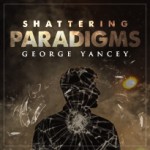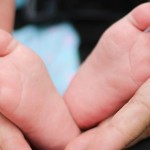If you recognize that line then you know the show it came from. Hogan’s Heroes and Sergeant Schultz right? The joke is that the evidence is clearly in front of him but he refuses to see it. It was a funny gag in the sitcom. Not so funny in real life.
The latest example of this not being funny in real life was illustrated by Professor Eddie Glaude in his encounter with Rod Dreher on the Morning Joe show. Dreher was on the show pushing his latest book about the coming soft totalitarianism and what conservative Christians should do about it. Glaude took offence at Dreher’s claims that conservative Christians, and conservatives in general are mistreated on college campuses. He stated that he did not know any of this “illiberal left” that was being talked about.
Now to be clear I have done academic work on Christianophobia and its effects in academia. There clearly is discrimination against conservative Christians in academia and other areas controlled by those with Christianophobia. I am not certain I would use the term soft totalitarianism as I would need a better definition of that concept to know whether I agree or disagree with Dreher on this.
But to claim that there has not been hostility towards conservative Christians in academia is a claim that flies in the face of research. I have previously documented evidence of this. Rather than claiming that complaints about such unfair treatment is evidence of white supremacy it would have been appropriate for him to avail himself of that research. But for Dr. Glaude “he sees nothing, he knows nothing.”
I have run into this attitude before. Most notably by religious and political conservatives defending President Trump. When pointing out his race-baiting and placating of racists I encounter excuse after excuse for his behavior. Pointing out how he stereotypes Hispanics, denied knowledge of white supremacists, insulted nations of color and attacked a Mexican judge for his Mexican heritage are insufficient for them to see the way their hero uses race in a way that denigrates people of color. They see nothing. They know nothing.
This propensity to ignore evidence that groups or individuals one supports is human nature. It is just part of the confirmation bias that can impact any of us. It can impact liberal professors such as Glaude or conservative Trump supporters. All of us should be careful to question our attitudes when it comes to defending our friends and attacking our enemies. One way we can be more open that our perceptions may be incorrect is to look at what level of evidence we require in order to accept assertions of discrimination.
For example, my conservative friends very easily dismiss insults launched at people of color. When Trump implied that Judge Curiel was not fair to him because he is a Mexican, they are oblivious to how insulting that is for Mexican Americans. Indeed many of them are quick to assert that Curiel’s membership in certain ethnic organizations is evidence that he may indeed be unfair. They quickly look for evidence that allows them to deny the racism of the president. Yet the same individuals are quick to rightly point out that when some Democrat Senators use religious tests against conservative Christians that it is unfair to assume that membership in Christian organizations indicates that a Christian is automatically biased. The same level of evidence that convinces them that they are being unfairly treated does not convince them that Trump is mistreating Hispanic Americans.
Of course the same is true of progressive professors such as Glaude. For example, one piece of evidence that conservative Christians are discriminated against in academia is a survey I did several years ago which indicated that about half of academics in the social sciences and humanities stated that they would discriminate against conservative Protestants seeking an academic position. When informed about this these academics either tend to justify such discrimination (those crazy Christians hate science anyway right?) or they state that this is not enough evidence of discrimination. Imagine if I had a survey showing that about half of academics stated that they were willing to discriminate against blacks, or women, or the transgendered or any group they support. Would they so easily dismiss this as nonsufficient evidence? I think we all know the answer to that.
When people do not want to believe something, they require near absolute proof to change their minds. The problem is that there are few things in life that can absolutely be proven. Mathematical formulas. Perhaps some logical axioms. But little of anything else can be proven. So asking for absolute proof of racism or Christianophobia is a good way to see nothing. To know nothing.
I am in a unique position to see this. An African-American who is a conservative Christian in academia gets a chance to see all sorts of hypocrisies. The fact that I have studied and conducted research on both racism and Christianophobia makes it hard for me not to see the similarities between those that deny those problems in our society (Although I recognize that they are not identical). I know what it is like to be the “minority” in a racial sense and in a religious sense. And so it bothers me listening to liberal academics deny my experience as a conservative Christian in academia despite the empirical evidence that anti-Christian bias is a problem. And it also irritates me when whites deny my experience as a black man once again despite the empirical evidence that racism continues to be a problem in our country.
Ironically those who deny the problem of racism are most likely to see the problems of Christianophobia and vice versa. I have no doubt that I too have my blind spots and have to be careful to use the same standard of evidence to assess the groups I like as I do the groups I do not like. The only way we can minimize the confirmation bias that professor Glaude and my conservative friends exhibit is to be intentional and introspective about how we see our out-groups. That is not a guarantee that we will not from time to time fall victim to this very human instinct. But such intentionality may provide us a needed dose of humility when we are told about the discrimination and mistreatment others may face.











